Lest we forget…
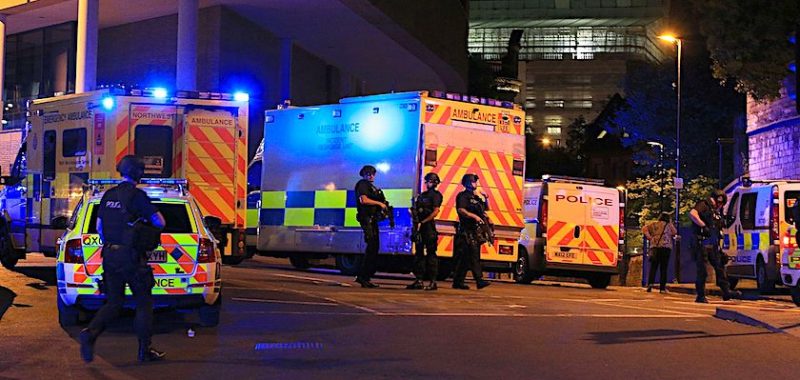
Five years after 23 people lost their lives, Sorted’s Val Fraser shares her personal memories about the Manchester Arena tragedy and reflects on an act of terrorism that shook the world.

In 2017, I was assigned to a journalism gig in Manchester. A colleague and I were briefed to create multimedia coverage which would tell the stories around two Suffragan Bishops’ walkabouts. “My” Bishop was the Rt Rev Mark Ashcroft.
Meetings were scheduled. Itineraries were mapped out. Tea and biscuits were stock-piled. It all promised to be very jolly. But then, just before the first stop on our 12-day tour, tragedy struck at the heart of Manchester, sending shock waves across the world.
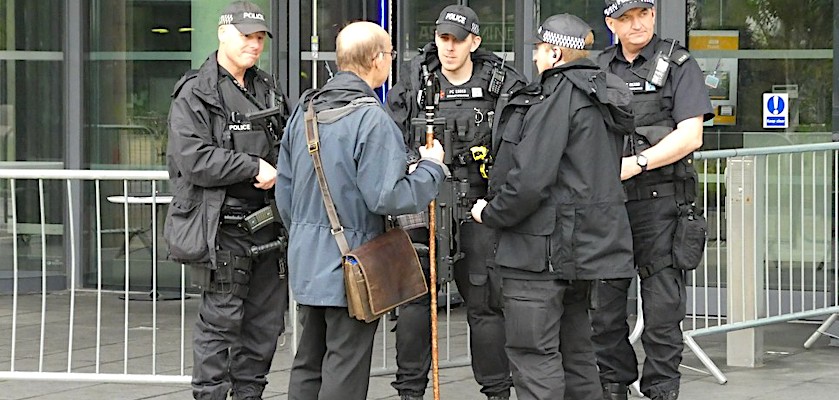 LENDING SUPPORT: Bishop Mark talks to police officers who are on the beat near Media City.
LENDING SUPPORT: Bishop Mark talks to police officers who are on the beat near Media City.
On 22 May, at around 10.30 pm, as concert-goers were leaving the Manchester Arena following a concert by American singer, Ariana Grande, a suicide bomber detonated a homemade bomb. The act killed 23 people and injured more than a thousand others, many of whom were children.
It was the deadliest terrorist attack and the first suicide bombing in the UK since the 2005 London bombings. Emergency services worked incredibly hard. The whole nation seemed to be on edge, prompting fraught discussions in high places.
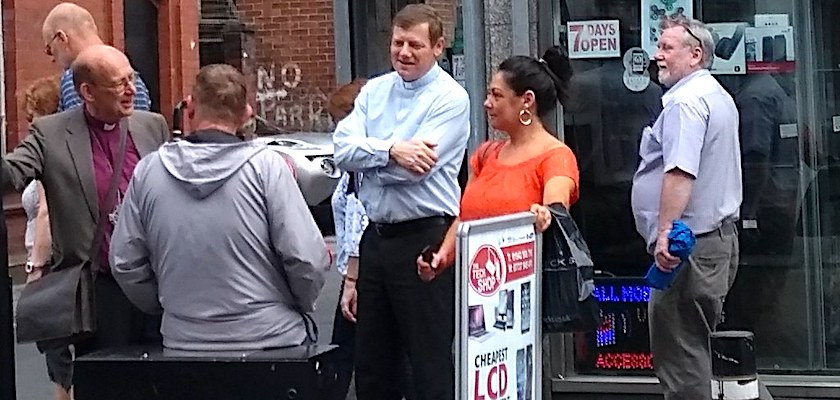 LENDING AN EAR: The Bishop talks to people shocked and alarmed by the bombing.
LENDING AN EAR: The Bishop talks to people shocked and alarmed by the bombing.
The walkabout, or ‘pilgrimage’, had been prepared well in advance as part of a Church of England initiative called Thy Kingdom Come. In the aftermath of the bombing, it was deemed more important than ever that a comforting Christian presence should be visible, so the decision was made to go ahead as planned. Not really sure what to expect, I loaded up my gear and prepared to follow Bishop Mark around various Manchester locations.
I zoomed, clicked, filmed and tweeted as he received warm, well-planned welcomes at schools, hospitals and churches. But in between these vicar-friendly venues, Bishop Mark took to the streets. He walked through shopping centres, busy markets, parks and towns. He rode trains and buses. And it was here, off-plan, with no script, in unchartered waters as it were, that he engaged with total strangers. It’s my observation that a man with clearly recognisable Christian markers such as a clergy collar, a large shepherd’s crook and a massive cross and chain, was able to elicit an interesting variety of reactions in public spaces.
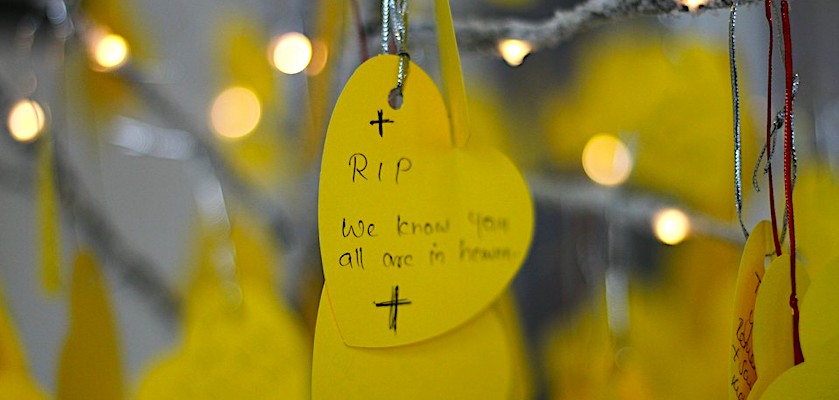 REMEMBERING THE FALLEN: A message speaks loudly for those who perished.
REMEMBERING THE FALLEN: A message speaks loudly for those who perished.
Watching these encounters up close, it quickly became apparent to me the bombing had caused the public’s mood to shift quite significantly. Many people were reeling from the shock. There seemed to be a heightened awareness that humans are capable of unbelievably horrible acts. Andy Burnham, the city’s mayor, described the act as “evil”. I for one felt he’d summed it up accurately.
Knowing that it was possible for any one of us to be in the wrong place, at the wrong time, was deeply disturbing. This disturbance seemed to generate some degree of openness towards God, towards goodness, towards hoping for things to be better than this.
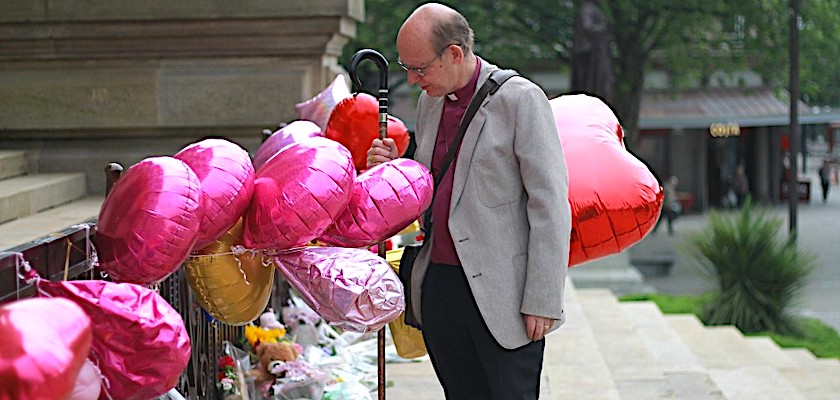 DEEPLY MOVED: Bishop Mark reads some of the tributes left for those who died.
DEEPLY MOVED: Bishop Mark reads some of the tributes left for those who died.
And it was in this atmosphere that Bishop Mark was able to pause and pray with, for, and over people. Some requested a blessing. There were lots of these essentially private moments, when I switched the camera off, retreated to a suitable distance and gave him the space to minister to some confused and fearful folks. I think he just wanted to meet with people and offer them some hope.
As well as being kind, Bishop Mark is also very fast on his feet. On one leg of our journey, he somehow managed to give me the slip. I was hot on his heels, following the trail when he seemed to double back and disappear into a rabbit warren of hospital corridors. I started to panic, thinking I was going to miss the ‘Bishop visits hospital’ story. But when our paths crossed again I learned he’d been praying in the chapel. In that sanctuary, he met with hospital chaplains. They told him about the doctors and nurses who had cared for patients that were seriously injured in the bombing. And I was glad not to have been there.
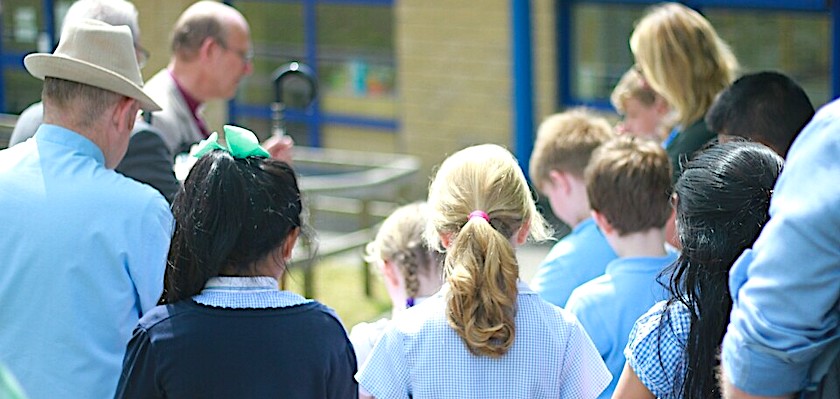 MAKING SENSE OF THINGS: The Bishop talks to school children about the tragedy.
MAKING SENSE OF THINGS: The Bishop talks to school children about the tragedy.
In truth, I was glad that those moments had been just between them and God. I was glad that I missed that particular story because I don’t think it was ever mine to tell.
Val Fraser is a regular Sorted columnist and a Manchester-based freelance journalist
